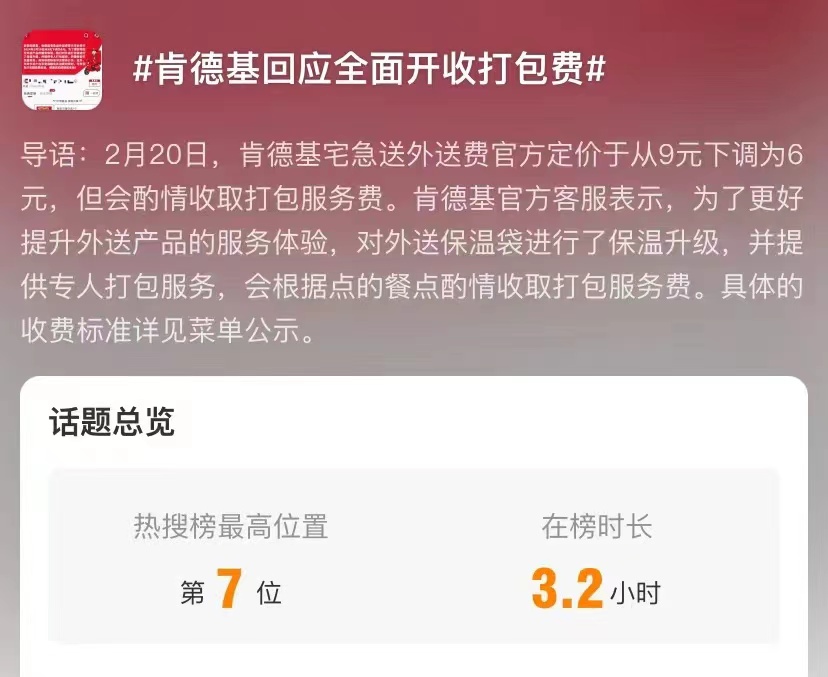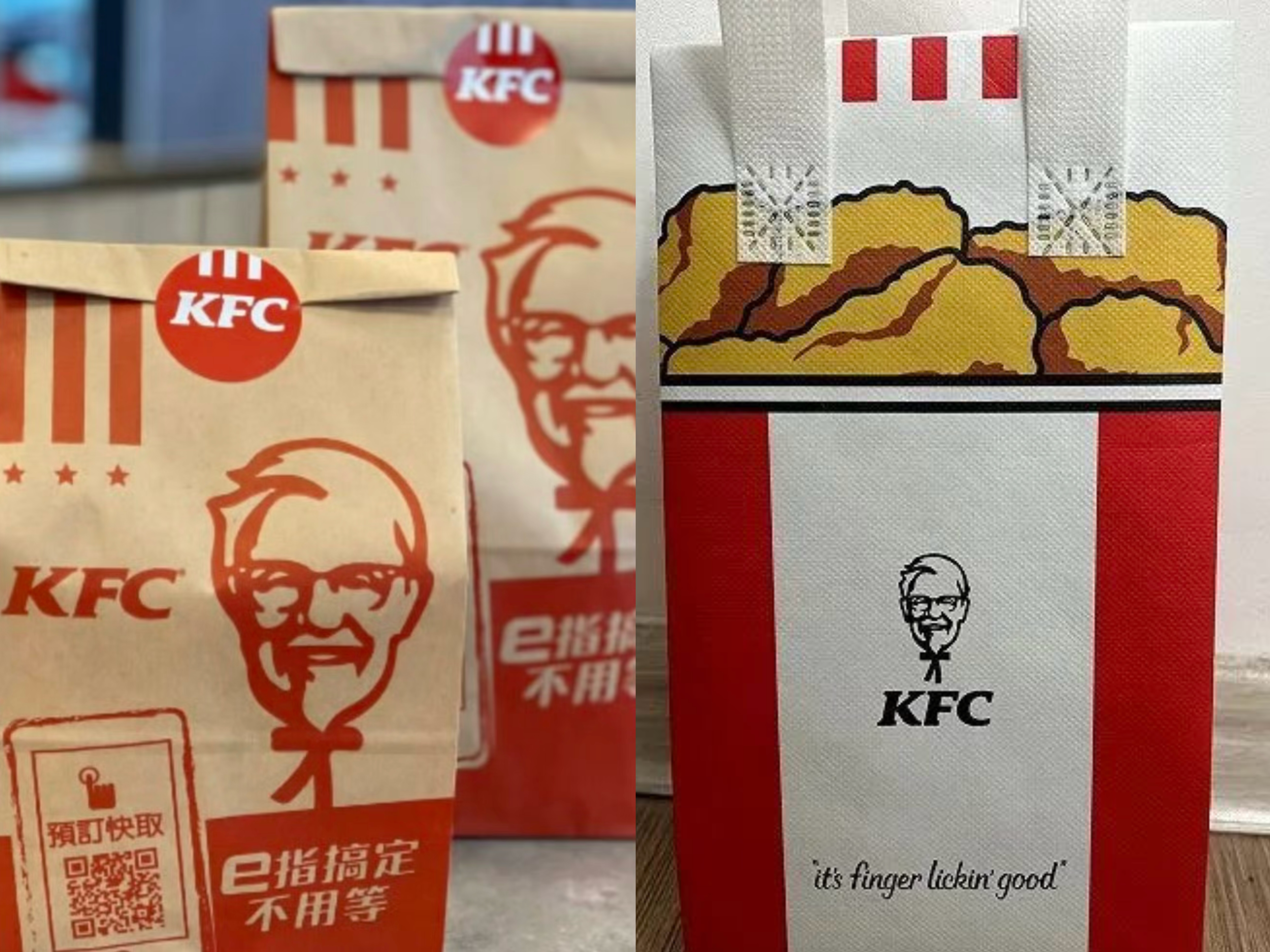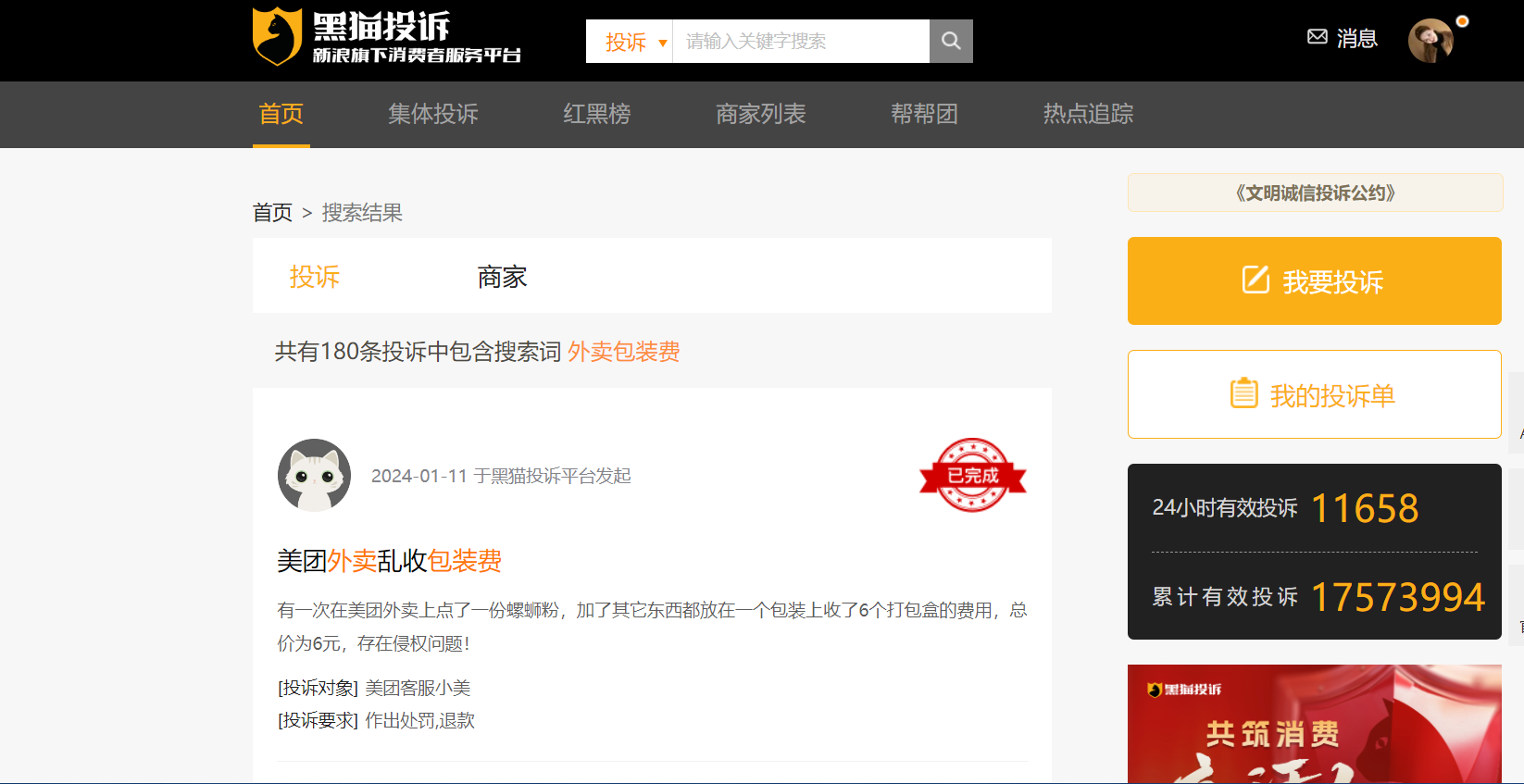The packaging fee charged by the brand fast food has caused heated discussions, how to deal with the "packaging" assassin?
On February 20, the official website of the brand fast food KFC showed that the official price of KFC home delivery fee was reduced from 9 yuan to 6 yuan from now on. At the same time, KFC will charge a takeaway service fee at its discretion. As soon as the news came out, it aroused the attention and heated discussions of netizens.

KFC's official customer service responded, "In order to better improve the service experience of the delivery products, the thermal insulation bags for delivery have been upgraded, and special packaging services are provided, and packaging service fees will be charged according to the meals ordered." ”

Combined with the orders posted by netizens, it was found that the packaging of the delivery package was indeed replaced by a paper bag with an aluminum foil inside. Although there is a certain thermal insulation effect, netizens complained that compared with the paper bags delivered before, this kind of non-woven bag material insulation bag is not environmentally friendly.
Because the "cloth" in the non-woven bag is made of cotton, the main material is polypropylene fiber, which is the main polymer component of synthetic plastics. While it's tough and reusable, it's just as resistant to degradation and polluting the environment. If used only once, the energy consumption of a single non-woven bag is 17.8 times that of a single-use plastic bag, and the carbon emission is 16.7 times that of a single-use plastic bag.
Consumer disputes are also caused by the payment of a higher delivery fee in addition to the packaging fee, which consumers believe should be the normal operating cost of the merchant and should not be charged extra. On other takeaway platforms, the reporter found that there are also packaging fees, but the delivery fee will be lower than that of KFC.
In fact, the original purpose of charging packaging fees was to reduce carbon emissions. According to the "plastic restriction order" and other relevant policies, merchants are not allowed to provide plastic shopping bags for free, so when packaging takeaway goods, they need to charge corresponding packaging fees. Nowadays, the problem of abuse of packaging in the takeaway industry is frequent, giving merchants the opportunity to charge indiscriminately in various names. For example, on New Year's Day this year, Hema was exposed to the environmental protection banner of "plastic restriction order", charging packaging fees for compensation and bundling consumption, and netizens complained about its "ugly appearance".
The intention of charging packaging fees should also return to the "green environmental protection" of takeaway packaging itself, and unnecessary packaging burdens cannot be increased through bundled consumption. Some takeaway platforms have indiscriminately charged packaging fees, resulting in excessive packaging. The reporter searched for hundreds of complaints about the takeaway "packaging fee" on the black cat complaint platform, and many of them complained about the "packaging assassin" phenomenon such as excessive and repeated charges resulting in packaging waste.

Combined with the investigation of local consumer associations, the reporter found that at present, the takeaway platform has not carried out relevant unified regulations on packaging fees, and the platform usually has no right to interfere with the specific packaging charges of merchants, but only advocates that merchants use tableware packaging moderately and reasonably, and set charges for merchant packaging fees.
In the context of relatively weak platform supervision, how should consumers respond to the current "packaging assassins" who indiscriminately charge and overcharge "packaging fees" on takeaway platforms?
Liu Min, a lawyer at Shanghai Central Law (Bengbu) Law Firm, pointed out that according to Article 8 of the Law on the Protection of Consumer Rights and Interests, consumers have the right to know the truth about the goods they buy or use or the services they receive, and Article 10 stipulates that consumers have the right to fair trade. When purchasing goods or receiving services, consumers have the right to obtain fair trading conditions such as quality assurance, reasonable prices, and correct measurements, and have the right to refuse the forced trading behavior of business operators.
Lawyer Liu Min said that if the takeaway merchant does not inform the consumer of the billing standard and billing rules of the packaging fee and the specific packaging standard, the packaging fee is repeatedly charged for a single product or the packaging fee is still charged for the product with its own packaging, which infringes on the consumer's right to know and the right to fair trade.
At the same time, according to Article 9 of the Law on the Protection of Consumer Rights and Interests, consumers have the right to choose goods or services independently. If the merchant "hides" the packaging fee and the meal fee and bundles it and forces consumption, it will infringe on the consumer's right to know and the right to make independent choices, and the consumer has the right to refuse.
The Jiangsu Provincial Consumer Rights Protection Commission also stated that in conjunction with Article 5 of the Consumer Rights and Interests Protection Law, the state advocates civilized, healthy, resource-saving and environmentally-friendly consumption methods, and opposes waste. There is no conflict between green consumption and the protection of consumers' legitimate rights.
They called on operators to explore sales strategies to reduce the frequency of use of plastic shopping bags, rather than simply and rudely charging a flat fee. On the one hand, it gives consumers the right to choose when placing an order, allowing consumers to choose whether they need to use plastic shopping bags according to their own needs. On the other hand, since takeaway or supermarket delivery is mostly door-to-door, warehousing and distribution links can be optimized, and recyclable packaging can be used for environmentally friendly distribution, such as using environmentally friendly materials such as cloth bags for distribution, and then brought back by the delivery personnel after the goods are delivered to the door.
In addition, for these "packaging" assassins, takeaway platforms should also consciously take the initiative to take regulatory responsibility, and if a similar situation occurs, consumers can also complain to the consumer association and the market supervision and management department.







